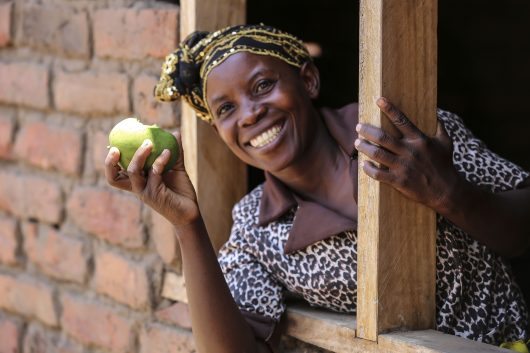How GMOs Could Potentially End Poverty and Hunger in Africa

One of the major ways extreme poverty and hunger can be terminated is an increase in agricultural activity. Genetically modified organisms, or GMOs, could potentially be a part of solving the poverty challenge.
Food products with GMOs are genetically engineered to increase crop yields, lower costs for food production, reduce the need for pesticides, enhance nutrient composition and food quality, resist pests and disease and increase food security.
Technological advancement has also made it possible for GMOs to withstand environmental stressors, allowing them to grow in conditions where they may not otherwise be able to thrive.
Though there are risks and controversies surrounding the use of GMOs, they could play a role in creating a new green revolution in Africa. African governments and donors can initiate the use of GMOs in Africa, according to the Center for Global Development (CGD).
Primarily, governments in Africa can develop cost-effective regulatory policies for these organisms. The policies would cover developing, testing, commercializing and importing genetically modified crops—most areas. Clear strategies would reduce uncertainty for potential investors by ensuring breakthroughs that occur can be distributed to farmers.
African governments can also exchange experiences and information about GMOs among each other. A platform to share information would help governments make cost effective decisions and learn potential opportunities and risks associated with GMO traits under certain conditions.
Pursuing South-South cooperation on GMO trade and regulatory policies is another tactic African governments can execute. Though the European Union is the largest market for African agricultural exports, trade with emerging markets is growing at a much faster rate. Thus, African governments should coordinate with countries like Argentina, Brazil, India and China to develop regulations for trading GMOS.
Lastly, the CDG says that donors should provide technology-neutral support for research and development for food security. Donors should also build capacity to facilitate trade in GMOs. African countries need support for research on modified staple crops, which donors can provide. In addition, EU donors should also provide technical and financial support due to its role as a major market.
Genetic modification is just one of many technologies that can improve agricultural productivity in Africa and the investments required to implement them could improve agricultural productivity as a whole.
– Kerri Whelan
Photo: Flickr
